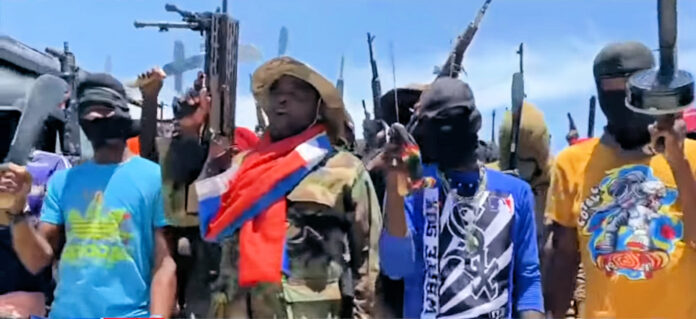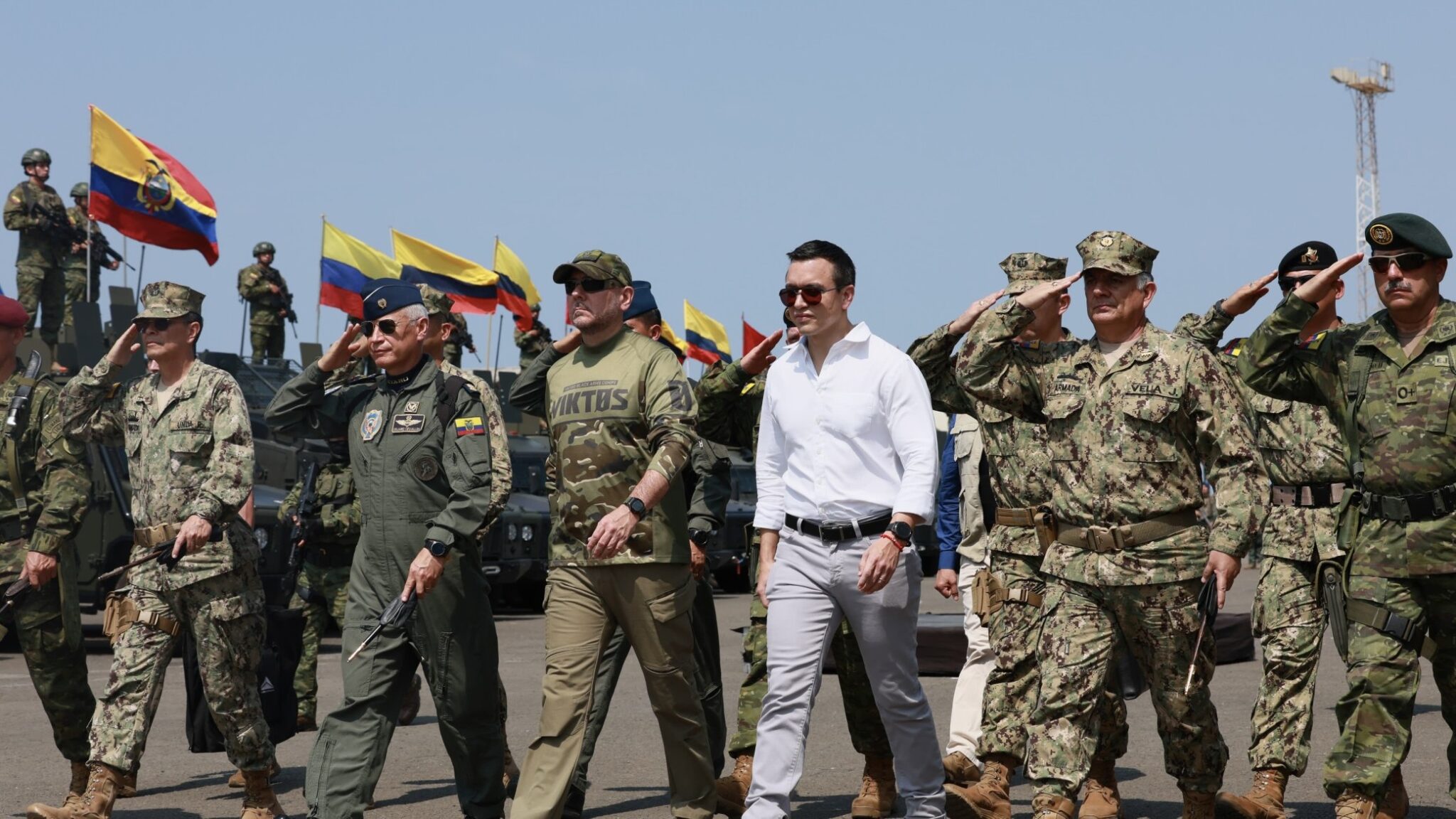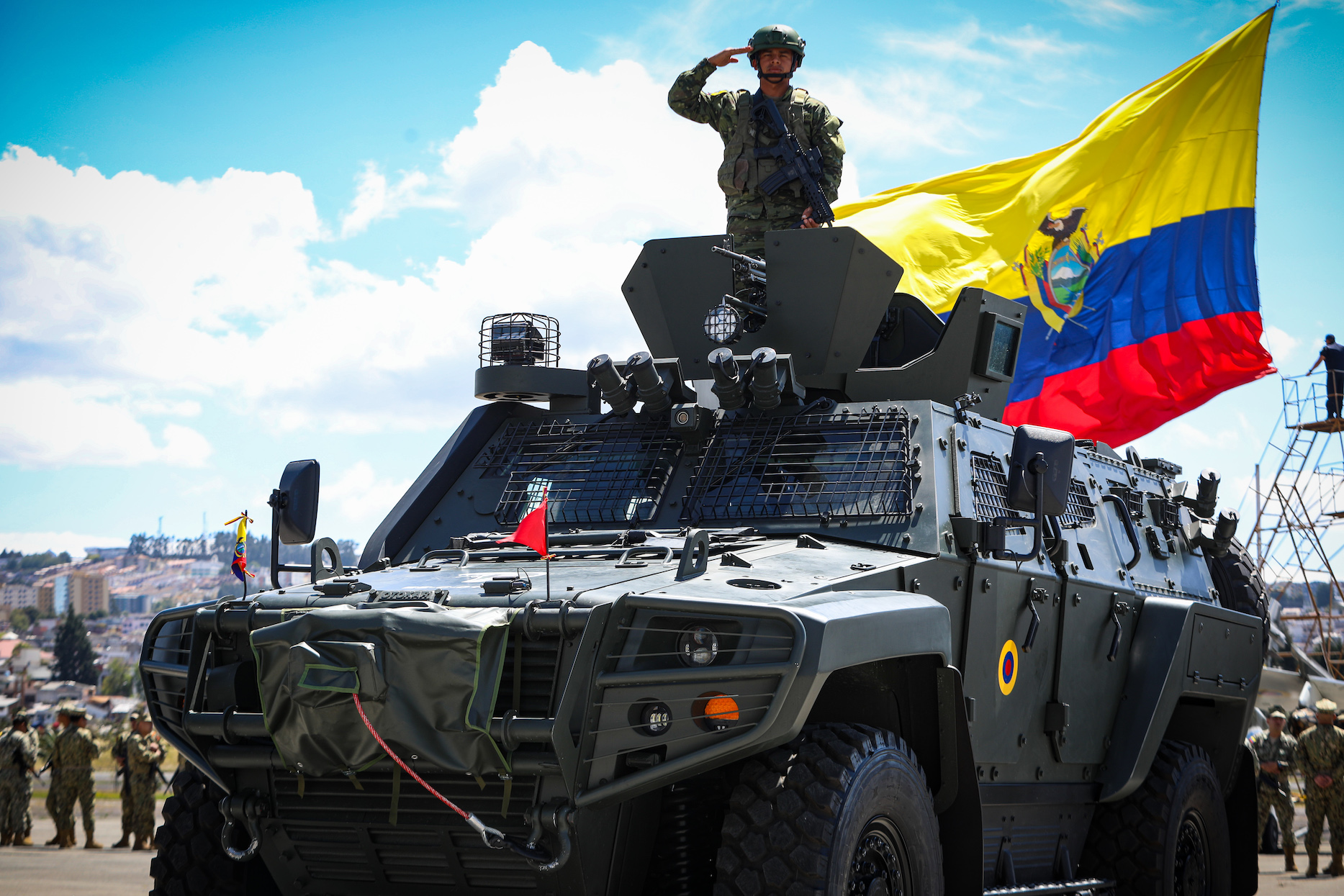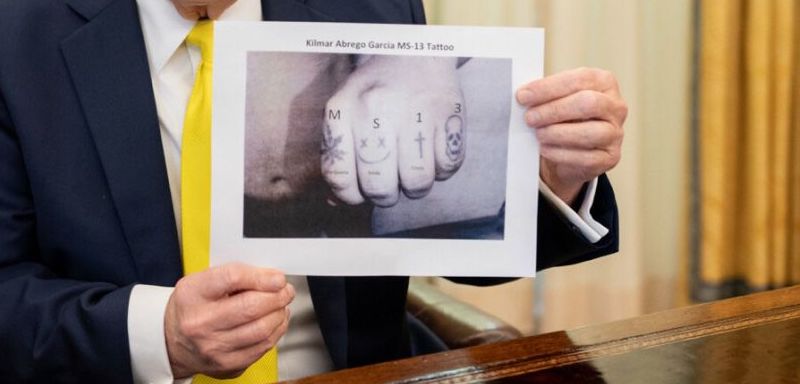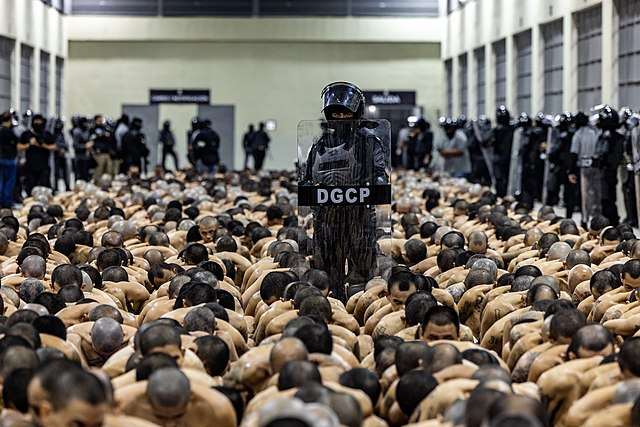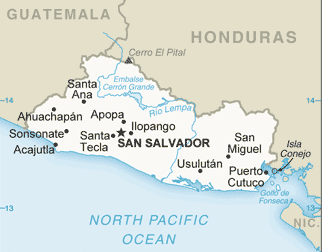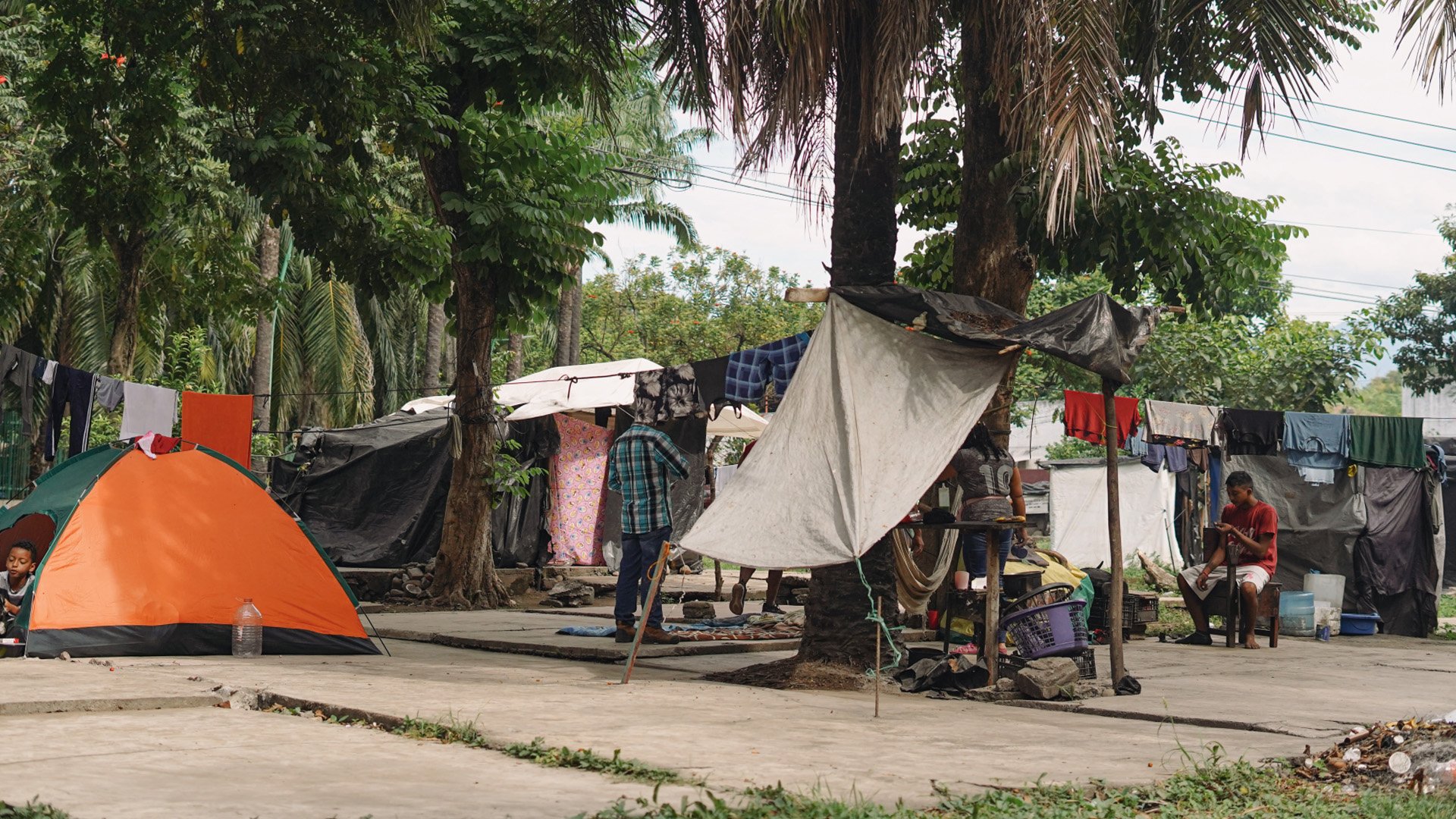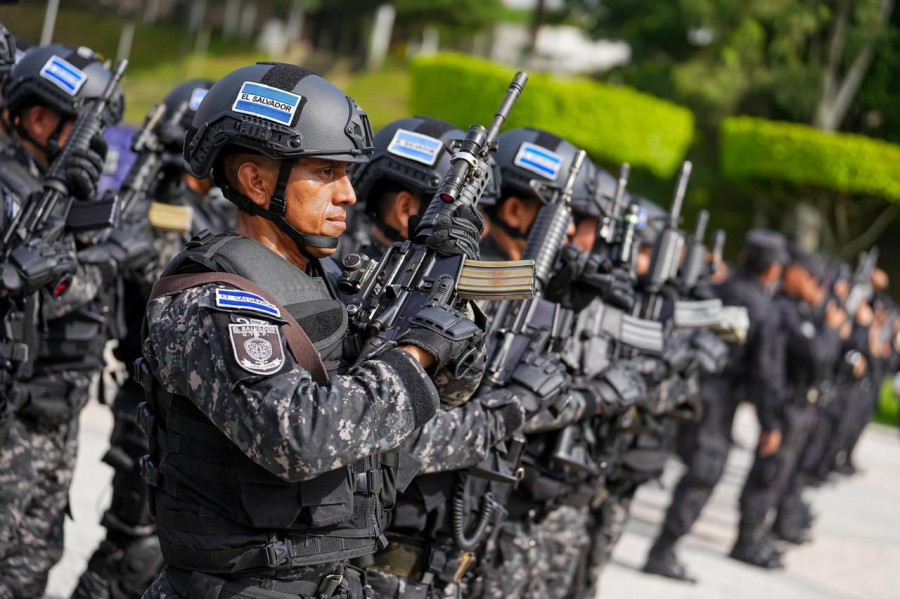
Podcast: MAGA-fascism and the struggle in El Salvador II
Kilmar Abrego García, released from extrajudicial detention in El Salvador, now fights deportation to Uganda. Hundreds of the Venezuelans sent by the US to the Salvadoran prison gulag have now been returned to Venezuela in a prisoner swap. But El Salvador remains on the growing list of human rights offenders cultivated by the Trump regime as surrogate detention states. The Trump State Department’s farcical “Human Rights Report” seeks to sanitize dictator Nayib Bukele’s anti-crime police state. And adding to the Orwellian nature of the Trump-Bukele axis, the US Justice Department has dropped charges against MS-13leaders who collaborated in the consolidation of the new Salvadoran dictatorship. In Episode 293 of the CounterVortex podcast, Bill Weinberg exposes the perverse charade. (Photo: Policía Nacional Civil de El Salvador via InfoDefensa)




